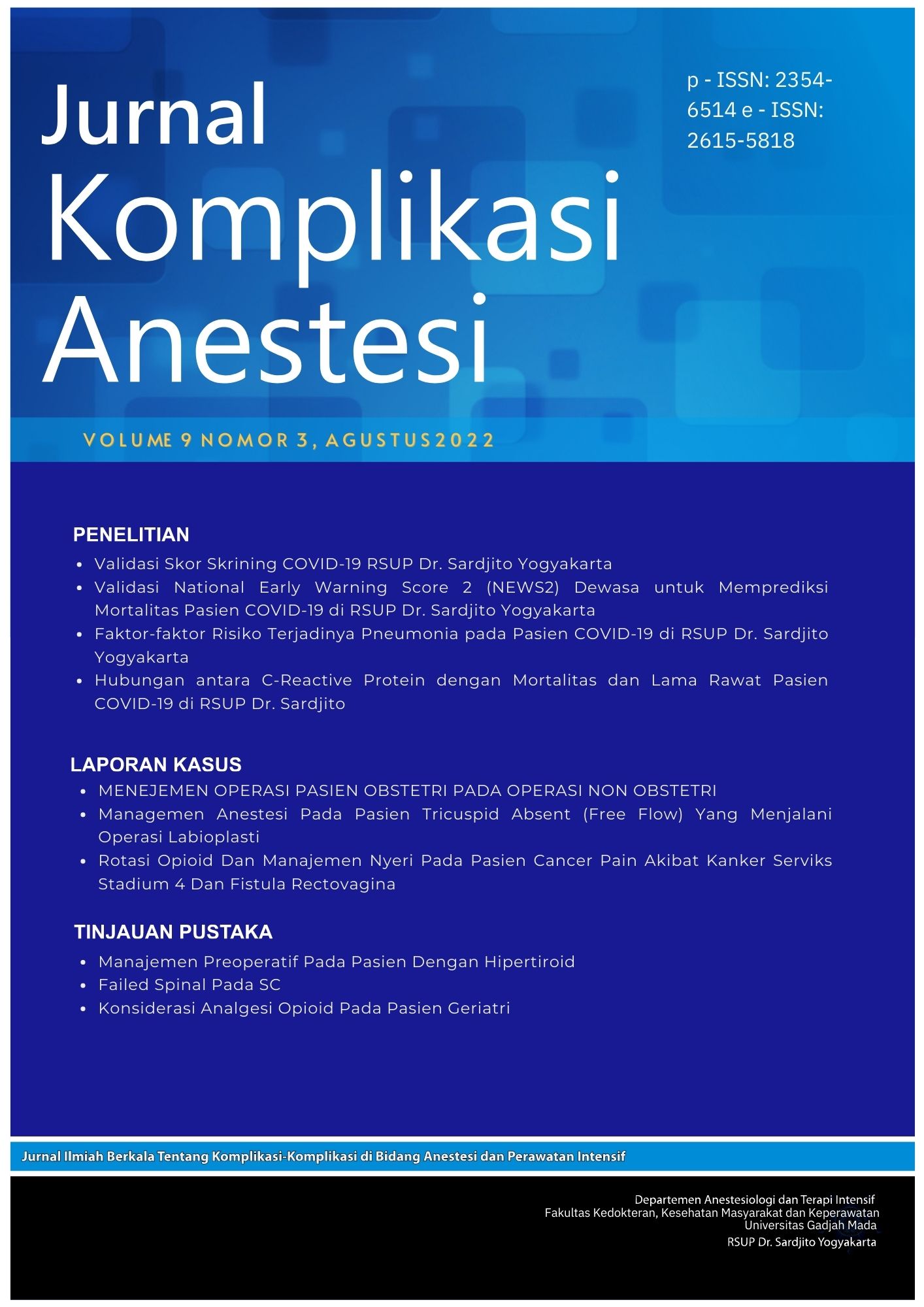Manajemen Operasi Pasien Obstetri pada Operasi Non-Obstetri
Abstract
Background: Breast cancer is the most common malignancy in women, but it rarely occurs as a comorbidity in pregnant women. Although it is rare, its occurrence is currently increasing worldwide. This trend is also occurring in Indonesia, where more than 80% of non-pregnant women are diagnosed with latestage breast cancer.
Method: We report the female patient Mrs. A is 33 years old, diagnosed with G3P2A0, 21 weeks of gestation with Ca mammae and will be planning a Modified Radical Mastectomy (MRM). The patient had never received chemotherapy or other treatment. We report female patient Mrs. The age of 33 years diagnosed G3P2A0, 21 weeks gestation with Ca mammary and will be planning a Modified Radical Mastectomy (MRM). The patient has never received any medication or other treatment. The patient has had an MRM procedure on June 29, 2021, with GA LMA anesthesia with attention to the physiology of the mother and fetus. Things that need to be considered are preoperative consultation with related sections (obstetrics and surgical oncology), provision of aspiration prophylaxis, drug selection, monitoring of maternal and fetal vital signs, providing adequate analgesia .
Discussion: The action taken on the patient is a radical modification of mastectomy, with an surgical and anesthetic technique approach that is expected to reduce the effect on the fetus in intraoperatively.
Conclusion: Anesthesiologists understand that pregnancy alters maternal anatomy and physiology to support fetal growth, but does not prevent the mother from developing pathologies that may require operative correction. The decision to operate should be postponed if possible, to avoid risks to the mother and fetus
Copyright (c) 2022 Juni Kurniawaty, Ratih Kumala Fajar, Hendra Hermawan

This work is licensed under a Creative Commons Attribution-NonCommercial-ShareAlike 4.0 International License.
The Contributor and the company/institution agree that all copies of the Final Published
Version or any part thereof distributed or posted by them in print or electronic format as permitted herein will include the notice of copyright as stipulated in the Journal and a full citation to the Journal.

















